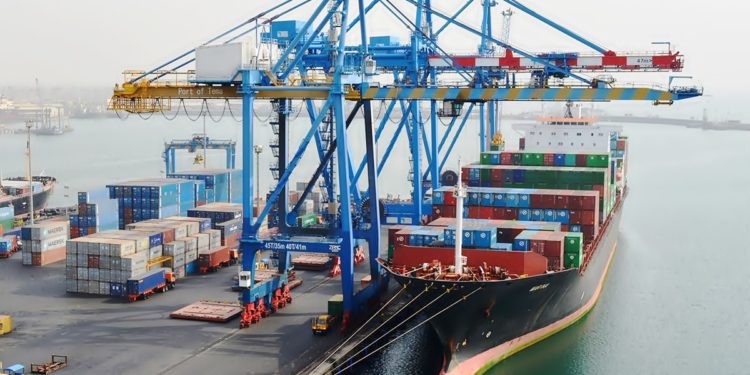Supply Chain Resilience: Managing Organisational Risks And Disruptions
Over the years, supply chain professionals have measured success by how well they have been able to drive down costs and drive up efficiency.
Africa is a continent richly blessed in resources and untapped potential, making the need for resilience even more pronounced.
Building a resilient supply chain has become crucial in today’s rapidly evolving global landscape. With the unique challenges, including infrastructure gaps, political instability, and unpredictable weather patterns, supply chain resilience in Africa presents opportunities for businesses seeking to establish a strong foothold in the region.
Supply chain resilience in Africa is about bouncing back and building more robust networks, fostering collaboration, and embracing innovation for a more resilient future.
Speaking on Eye on Port, Mr. Ephraim Asare, Vice President of Logistics at the Chartered Institute of Logistics and Transport (CILT), Ghana, has stated that notably, the current situation as a country is that there is a level of resilience.
Considering the fact that manufacturing remains active in a number of industries, trade is taking place locally as well as globally.
‘’Notably, there’s some level of resilience; the backdrop is that, yes, procurement is going on; there’s production going on in various sectors; trade is happening internationally and internally. Logistics movement is there, so we are as a nation taking part actively in trade’’.
According to Mr. Asare, the supply chain includes all of the different businesses and technological tools that are used in the manufacturing process, from supply to the manufacturing or production house and back, and on to inventory, stock taking, warehousing, market centers, and distribution agencies, all the way to the final destination of the consumer’s table or apartment. In between, transportation is all that is required.
He stated that while the country is engaging in some trade, there are still issues impacting the supply chain’s flow, such as raw material shortages, delivery delays, climate change, and child labor in the manufacturing process.
Supply chain management (SCM) is the monitoring and optimization of the production and distribution of a company’s products and services. It seeks to improve and make more efficient all processes involved in turning raw materials and components into final products and getting them to the ultimate customer. Effective SCM can help streamline a company’s activities to eliminate waste, maximize customer value, and gain a competitive advantage in the marketplace.
Executive Secretary of the Charted Institute of Logistics and Transport- CILT Ghana, Mr. Patrick Andoh (FCILT) expressed worry that, if a country’s supply chain is threatened, this will have a serious repercussion on a countries economy and when supply chain also faces challenge in organizations the free flow of products and services will also break down. He also emphasized on the need to critically pay attention to the scope of supply chain.
“If a country’s supply chain is threatened, this will have a serious challenge on the country’s economy and when supply chain also faces challenge in organizations the free flow of products and services will also break down, so every corner that you see across the length and breadth of this country every Enterprise that you see there’s a supply chain right but they may not know that they are practicing supply chain so it’s an area that much attention must be looked at you know we didn’t hear much about supply chain until the pandemic.”
Mr. Ephraim Asare, appealed to GPHA to hold on to Transit Trade, inculcating periodic roundtable discussion with stakeholders assuring them on the need to use Ghana’s transit corridors.
‘’I also want to appeal to GPHA, as landlords, they have come far in terms of infrastructure and trade facilitation. They should man up their game. I’ve said the crisis on the Red Sea area is making more vessels pass through our corridors. We should try to hold on to the transit trade right and get information. let’s get these various Chambers on the round table regularly. Meetings must be religiously conducted and assure them that the Tema and Takoradi ports are the corridor safe for them.”
He averred that hospitality towards them is high and the African Continental free trade area is hosting the headquarters we can use these stretches to bring them on board right so that the Inland flow of traffic and the flow goods will be very beneficial to everyone.
In conclusion, Mr. Patrick Andoh stated that, when you take any sector in Ghana there is a supply chain being it the health sector, the agriculture sector, the mining sector every sector every organization have a supply chain but they may not necessarily know that it’s a function in there what happens is that, our knowledge in one area does not cover our ignorance in another area. If we don’t have the skill set when it comes to supply chain logistics, you pay dearly for it. He also encouraged all executive and leaders that it’s about time we begin to give more attention to this area specially to advance some knowledge and skill set to our SMEs in that order.








